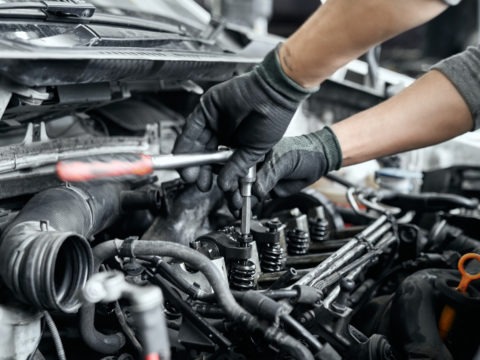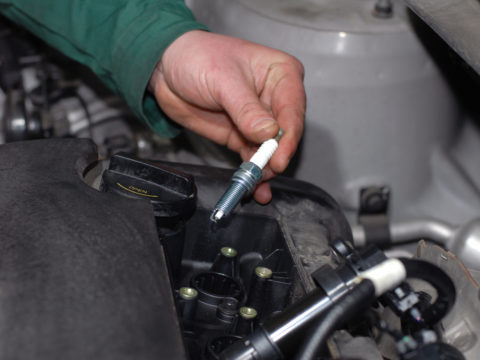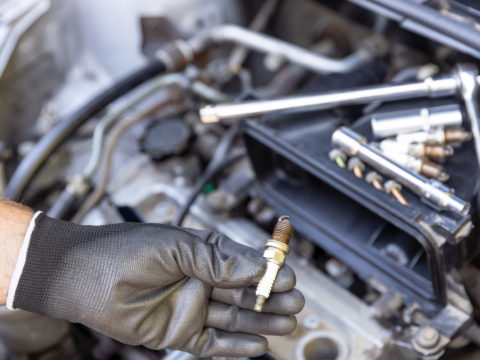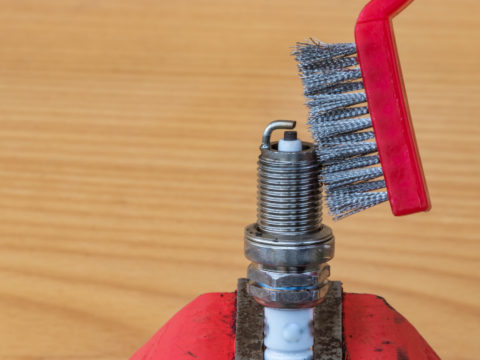Spark plugs are vital components of gasoline-powered engines. While they all create sparks that cause ignition in the air/gas mixture in the engine, some perform their role better than others.
Numerous spark plugs exist on the market, each with its pros and cons. But which best suits your engine?
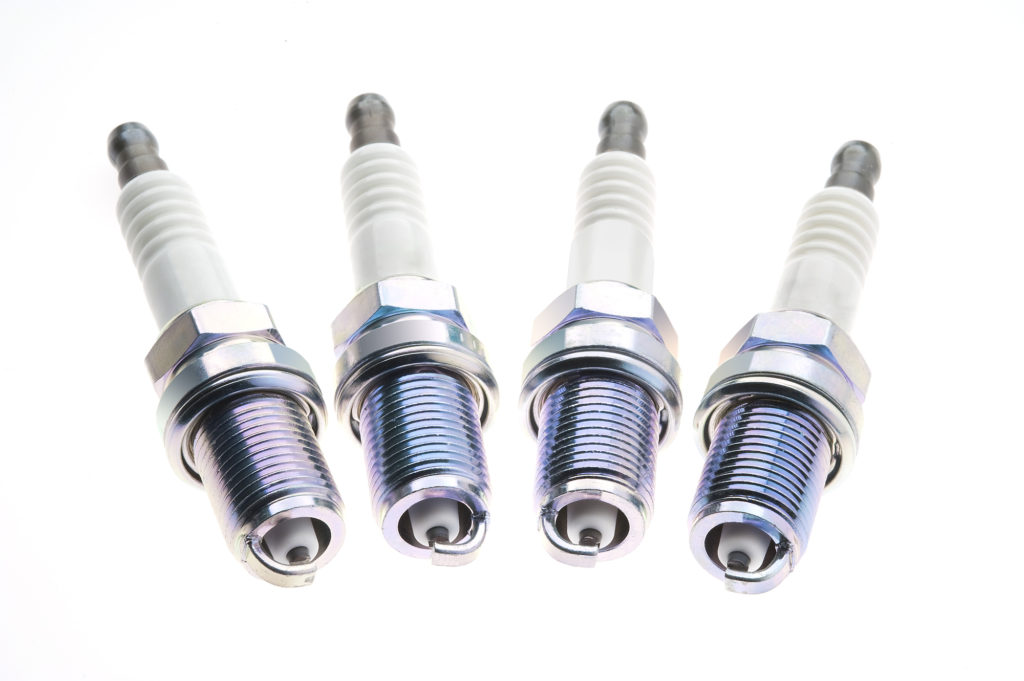
Contents
What Makes Spark Plugs Different?
Several features make spark plugs different, including size, prices, and brand. That said, the most distinctive feature of spark plugs is the type of metal used in making them. These metals create a difference in the spark plug’s performance, strength, weakness, and longevity.
The most common metals that construct spark plugs are copper, nickel alloy, iridium, platinum, and silver.
Why Are There Different Types of Spark Plugs?
Each vehicle has its own manufacturer’s recommendation on the type of spark plug to install. For compatibility purposes and effectiveness, the spark plug you install has to match the design of your engine.
Even so, you’ll discover different spark plugs that match your vehicle’s engine. Though they all fit, some features make them different. They come in contrasting prices and construction materials. Depending on the make, some spark plugs last longer than others.
Different spark plugs give you a great variety to choose from, depending on your budget and needs.
Types of Spark Plugs
There are five common spark plugs on the market: iridium, copper, platinum, double platinum, and silver.
These spark plugs have unique features, functionalities, as well as pros and cons. Here’s a look at each of them in detail to help you decide the best for your vehicle.
1) Iridium Spark Plugs
If you’re looking for high-performance, then iridium spark plugs are the perfect choice – they’re currently the best in the market. However, they come at a relatively high price.
Iridium metal itself is pretty hard and robust, making the iridium spark plugs durable. Compared to platinum, iridium is 6x harder and 8x stronger.
However, this precious metal is scarce, and extracting it from ore is also not easy. Even after extraction, manufacturers remain with brittle metal, which isn’t easy to work with. These factors make the iridium spark plug pricey.
This spark plug features an iridium electrode at the center, which efficiently conducts electricity. Another point worth noting is that they have very tiny center electrodes, meaning that they only require a minimum voltage to cause ignition.
Iridium spark plugs have high-temperature resistance, with a 2460°C melting point. That’s about 700°C higher than the melting point of platinum metal.
All these features make the iridium spark plug a perfect option for high-performing engines. They also contribute to the iridium spark plug’s high price tag. For anyone on a tight budget, there are still other best options you can explore.
2) Copper Spark Plugs
These are the most common plugs available in the market. They’re the most affordable, and copper metal isn’t as scarce as iridium. The only problem is that you’ll have to replace them regularly since they won’t last as long.
Copper spark plugs’ bodies are solid copper, but they have nickel alloy that is sometimes mixed with copper-core central electrodes. This central electrode is what defines their performance and longevity.
The copper core metal is a good conductor of electricity and can transfer heat quickly. But on the other hand, nickel alloy metal is softer than metals like iridium, platinum, and silver. For these reasons, copper spark plugs will wear out faster than the rest after being exposed to heat and high pressure from the combustion chamber.
Although their recommendation is always for miles between 20,000-50,000, they can wear out after only 10,000 miles. These spark plugs also have a larger electrode diameter, hence needing high voltage to generate a spark.
Because of the above, copper spark plugs are best suited for older vehicles, especially those manufactured before 1980. Such cars don’t always require high electrical needs for the lack of many electrical accessories.
3) Platinum Spark Plugs
As the name suggests, the central electrodes of these spark plugs are made from platinum. Platinum is a better handler of high heat than copper, with a 1768 °C melting point.
Copper’s melting point is only 1,085 °C, indicating that platinum spark plugs will last longer than copper, but not as much as iridium plugs.
With such a melting point, platinum spark plugs run hot. This feature helps in burning all the deposits found on the spark plug, preventing dirt build-up. For this reason, they are a suitable choice for electronic distributor ignition system cars to help them wear out better.
However, platinum is not a good electricity conductor compared to copper. In terms of performance, copper spark plugs generally perform better than platinum plugs.
These spark plugs can last as long as 100,000 miles, but you must replace them after 60,000 miles. Although they don’t last long, they’re affordable.
4) Double Platinum Spark Plugs
There’s only a single notable difference between platinum spark plugs and double platinum spark plugs. Platinum has the platinum disc at the center, while the double-platinum has discs at the center and side electrodes.
Because of this feature, double platinum spark plugs are more durable with improved performance than their counterparts. They can fight rust and deterioration, enabling them to perform highly and last as long as 100,000 miles.
If your distributor ignition is a wasted spark ignition system, then you don’t have to think twice about getting a double platinum spark plug.
5) Silver Spark Plugs
The electrodes of silver spark plugs are silver-coated, as their name suggests. These spark plugs are not as common as the rest, but they have the best thermal conductivity.
Manufacturers say that silver spark plugs can last between 20,000 to 30,000 miles. But you may need to replace them earlier depending on different factors. A decrease in your vehicle’s performance, for instance, could indicate a fouling silver spark plug that you have to replace for better performance.
Since silver metal isn’t that long-lasting, silver spark plugs are primarily used in motorcycles and older European performance cars. These are not so demanding in terms of the electricity needed. So, they may last a bit longer in them without the need for replacements.
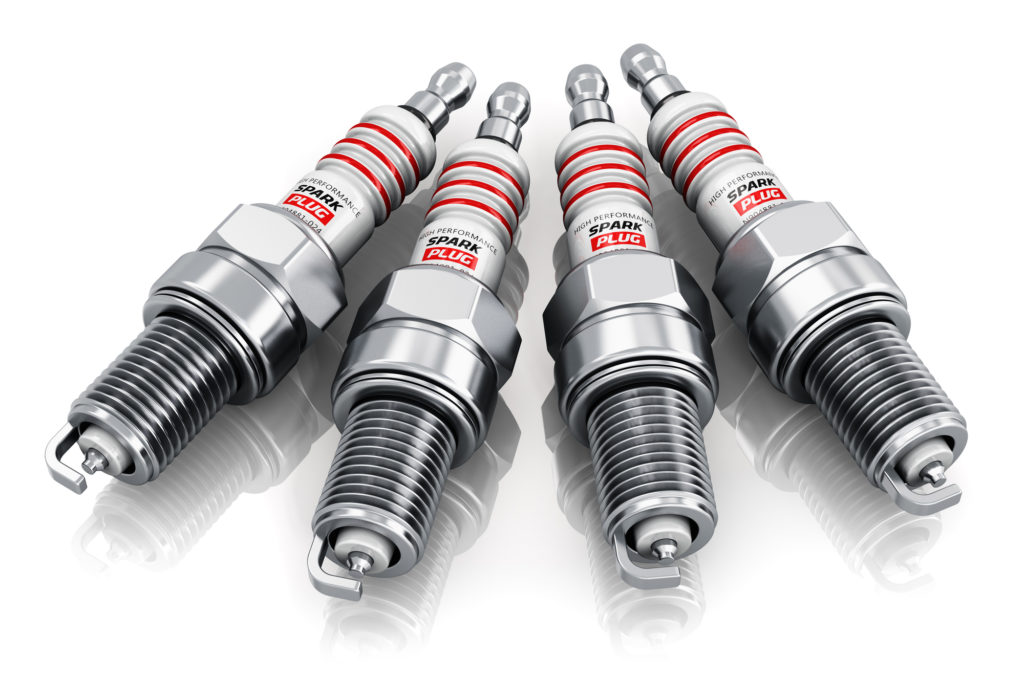
Pros and Cons of the Spark Plugs
| Type of Spark Plug | Pros | Cons |
| Iridium | It increases your car’s acceleration profileIt helps improve the performance of your engineIt ensures a smooth vehicle startIt helps improve fuel economy both in the city and on the highwayBecause of its small diameter, it requires less voltage to generate the needed sparkIt’s more durableIt’s also corrosion-resistantHighly recommended for modern cars | It’s priceyThe dust from this spark plug is highly flammable. You always have to take extra measures when working with it |
| Copper | They work best in older cars, especially those manufactured before 1980Are more affordable than iridium spark plugsAre excellent conductors of electricityThey transfer heat faster compared to other metals | They’re not durable, so you have to replace them regularly after every 20,000 miles for effective performanceThey require high voltage to generate spark because of their larger diametersDue to their standard gap sizes, they sometimes produce weak sparks. For this reason, you may be forced to invest in a gapping tool so you can increase the gap. This gapping tool will increase the efficiency of copper spark plugs and improve the mileage of your car |
| Platinum | They’re cheaper than iridium spark plugsDurable than copper spark plugs since they can last as much as 60,000 miles without replacementThey run hot, hence burning any debris and preventing debris build-up in your car’s ignition system | They’re not as long-lasting as their iridium counterpartsIn terms of performance, iridium and copper spark plugs give better performance |
| Double Platinum | They offer high durability and improved performance compared to platinum spark plugsThey’re highly reliable and effective in waste spark ignition systemsThey’re more affordable than iridium spark plugsTheir performance can’t be affected by environmental factors, such as weather, temperature, and humidity | You can’t use them in electronic DIS-Distribution Ignition SystemsThey don’t perform better than copper and iridium |
| Silver | Overall, these spark plugs are the best conductor of thermal heat and electricityThey offer excellent performance in motorcycles and older European carsThey’re also cheaper compared to the rest | They’re not as long-lasting as platinum and iridium spark plugsYou may need to replace them after every 20,000 miles or less |
How Do You Know the Best Spark Plug for Your Car?
The best part about spark plugs is that they’re easy to remove and install, making them an excellent DIY project. Here’s a simple YouTube guide on how you can easily install a spark plug yourself. However, for efficiency, you have to use the correct spark plug for your car. Otherwise, the car won’t even move.
The challenge comes in choosing the best spark plug for your car. From what you’ve already seen, some spark plugs will give you better longevity and performance than others. Others are also more expensive, based on several factors.
While all of the above factors matter, remember that the best fit for your vehicle is a spark plug designed specifically for your engine. From there, you can now narrow them up in terms of performance, longevity, and of course, your budget.
Your owner’s manual can help you know the best spark plug that is well-designed for your engine. However, if you can’t find it and you’re not sure, it’s best to consult a professional auto mechanic.

